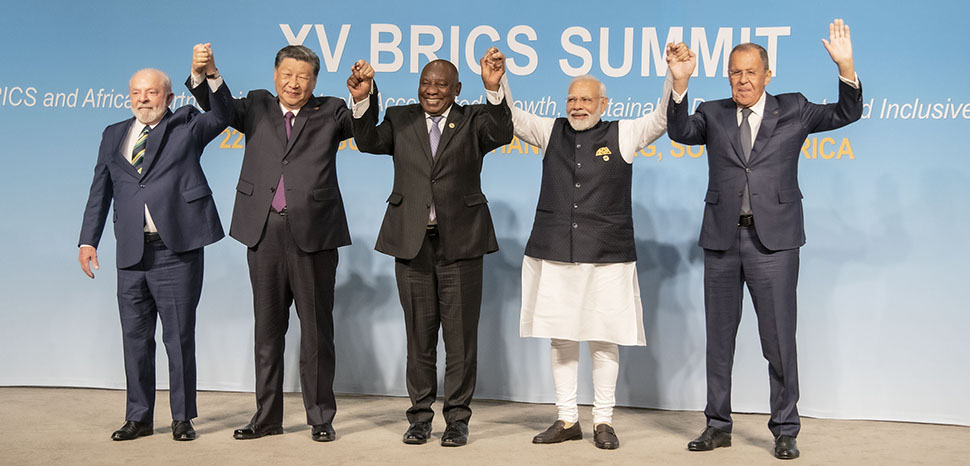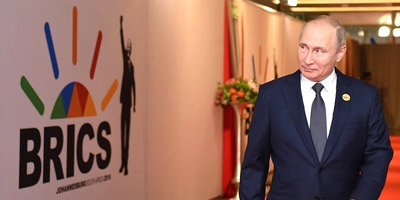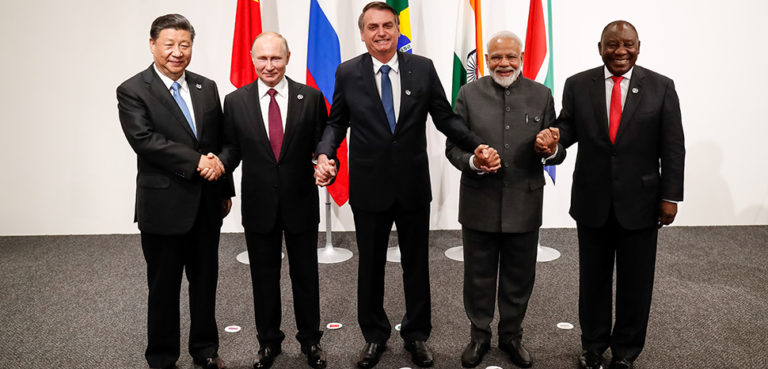The BRICS bloc of emerging economies – Brazil, Russia, India, China, and South Africa – have agreed to expand the grouping’s global reach with the addition of six new members as of January 1: Argentina, Egypt, Ethiopia, Iran, Saudi Arabia, and the United Arab Emirates. While more than 40 countries had expressed interest in joining the bloc, six were chosen in an effort to expand the interests of the Global South. But for India, the presumptive leader of this emerging region, the decision to expand BRICS is a major foreign policy blunder, one that puts additional power into the hands of its regional rival while restricting its own.
Experts have argued that BRICS has been beneficial for India, which as a multinational economic body, allows a comfortable, moderating space for both Beijing and New Delhi to talk without political distraction, even when there are security vulnerabilities ongoing for both, as evidenced by the Doklam standoff in 2017 and the current Ladakh crisis. While entry into economic and development bodies such as the Shanghai Cooperation Organization (SCO), or South Asian Association for Regional Cooperation (SAARC) have clear benefits, BRICS expansion carries more risks than rewards for India, as it dilutes its standing in the organization, while maximizing China’s influence through ties to countries it already has stronger partnerships with.
Iran’s relationship with China is on sturdy ground, with Iran increasingly dependent on Beijing as Western sanctions continue to bite. Tehran’s relationship with Xi Jinping is one concentrated on stimulating Iran’s energy output and economic development. Two years ago, Iran and China signed a $400 billion strategic cooperation agreement, one that would move Iran into China’s grand Belt and Road designs. There were added benefits for Beijing as the deal increased its influence in the Middle East. China is a major buyer of sanctioned oil and has a long-standing exploitative relationship with Tehran.
China welcomes Iran’s oil exports, but benefits from price restrictions as well as Iranian discounts, which can add up to as much as 25 percent. China gets away with it because it is willing to risk the consequences of dealing with sanctioned companies. Assisting the Iranians through BRICS allows China to move relations with Tehran to the next level, beyond oil or its continued assistance in helping develop Iran’s nuclear weapons capacity. Iran had tried to work with India or Brazil, but quickly realized that India was not willing to compromise its relationship with Europe and the United States. However, the ties that bind the two are also value oriented, as they are aligned on issues of national sovereignty, external inference, and are both motivated by the prospect of a strategic shift.
India’s relationship with Tehran is also based on energy needs and Iran’s geostrategic location, but it is dependent on Iran, not the other way around. Energy aside, India has much to be concerned about, as both rivals Pakistan and China could exploit Iran’s critical ports. India worked hard to get a deal to develop the Chabahar Port, in part because it worried that it could have been a potential security concern if China gained a foothold, as the Gwadar Port in Pakistan has become. Xi’s elevation of Iran into the BRICS umbrella risks giving China-Iran cooperation an additional boost, and an avenue out of economic isolation. Tensions with the United States and its Western allies will weaken as a result. It also complicated India’s attempts to create a Second Quad in Western Asia, as China has additional leverage as a result of this expansion. China’s renewed presence in the Middle East should worry India.
Iran’s entry into BRICS also creates a hostile environment for India in other mini-lateral and multilateral fora. While there may be an added benefit to India to draw on the addition of large OPEC countries, there is an extreme risk that the addition of Iran and Saudi Arabia, combined with Russia and China, would constitute the solidification of an anti-Western bloc, which could compromise India’s balancing acts in its relations with both the G7 countries and the G20, of which it is currently chair. While it on paper could give the Global South more of a voice in decision-making, the increased divisiveness created with BRICS expansion could make consensus, or even compromise much more difficult.
China’s hand in the inclusion of other countries cannot be discounted and they mark territory that India as a regional power cannot influence. China was instrumental in granting Argentina economic assistance to help it repay part of the $2.7 billion dollar loan it took from the International Monetary Fund (IMF). For Argentina, China has been a critical infrastructure development partner, borrowing more than $3 billion from Chinese banks to finance rail projects and renewable energy. Argentina’s entry into BRICS was also supported heavily by Brazil. As China’s reach throughout South America grows, its leverage over developing and emerging economies also grows. Beijing’s influence over Buenos Aires through BRICS will also grow.
While the repercussions of the expansion will not be felt until next year, and the shift in the world economic order might not be as large as some might predict due to currency valuations, India’s status within the bloc will diminish and it will be arduous for New Delhi to balance its odd relationship with Russia, its strategic rivalry with China, and maintain its influence in an alliance that now overwhelmingly favors Beijing.
The views expressed in this article belong to the authors alone and do not necessarily reflect those of Geopoliticalmonitor.com.




